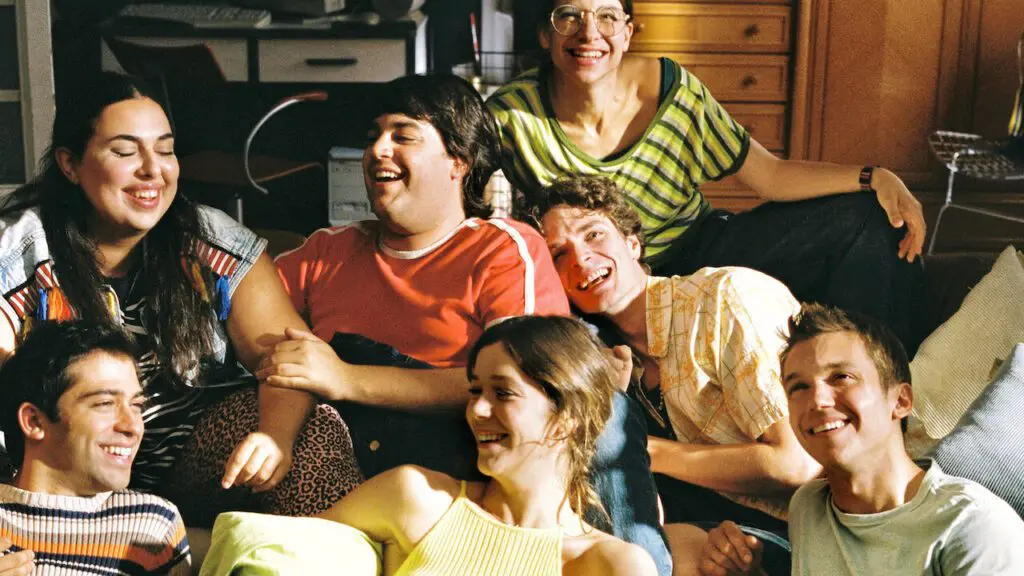Summary
A familiar love story plays out over an interestingly contorted timeline in In Love All Over Again, with a fun cast selling played-out material.
Romance is a simple, often tiring formula. You take two people, have them fall in love, and then contrive 90 minutes’ worth of reasons to stop them from being together. Eventually, in the end, they either realize they should never have been together in the first place or live happily ever after. Fin. The Spanish Netflix romantic-comedy series In Love All Over Again plays with this formula slightly. For one thing, it has to come up with eight whole episodes’ worth of contrivances, and to do that, it plays with an expansive timeline that covers the span of years between 2003 and 2022, revolving around a couple who fall in love, get together, split up, and reunite, again and again, and for all kinds of reasons.
There’s a meta flourish to all this. Irene (Georgina Amorós) is a budding filmmaker who is introduced to us, clacking out a screenplay about the very romance we’re watching, which is a useful narrative device to help keep the timeline in order. Her romantic counterpart is Julio (Franco Masini), a pre-law student in the same Madrid college who falls quite accidentally into being a big-time actor, along with all the conflicts of interest that might entail for a small-time creative trying to get a short film out of the door.
But things between the pair are complicated from the start, in part because Irene has left her hometown of Castellón and left a boyfriend, Fer (Albert Salazar), behind – though he doesn’t seem prone to staying there and moving on, especially after a very sudden development causes Irene some health issues and gives everyone present an endless supply of real-life storytelling inspiration. We weave in and out of the timeline from here, jumping from the present day to the past and back again, as Irene and Julio continue to float in and out of each other’s lives, while also navigating relationships with Irene’s roommates Da (Carlos González) and Jimena (Blanca Martínez).
The selling point here – aside from the general attractiveness of the cast, especially Julio, which doesn’t just go unremarked upon but also forms several plot points – is the timeline, since it’s used in a lot of ways to build tension and mystery as we wonder how such an idyllic-seeming relationship in the past can become so sour in the future. There’s a nice feeling of putting the pieces together as certain elements of the plot take shape, and for once, the show does a decent job of highlighting the passage of time in obvious ways, with easy signifiers in characters’ looks, appearances, and circumstances making it clear that we’re further along the timeline.
The show’s creator, Carlos Montero, also uses quite surprising events to force Irene and Julio apart, such as the 2004 Madrid train bombings, which aren’t overplayed and are genuinely shocking when they’re deployed. I also think the chemistry between the leads is very believable; you can see how their passion overtakes them here and there, helping to justify what are obviously terrible decisions (but don’t all young people make plenty of those?). There are still moments when certain things feel like a bit of a stretch, but that’s almost inevitable over a long-ish series covering such a wide span of time. For the most part, though, I found the flow of this relationship to be quite believable and engaging.
This is what matters, ultimately, though it also helps that this is a fun cast of characters, with Da especially being a clear highlight. They sell the drama, the party scenes, and the sexiness where required, and they also do a surprisingly good job of playing versions of themselves that are over a decade apart. In Love All Over Again might not rewrite the genre playbook, but it’s a very solid version of an age-old formula that fans will no doubt get a kick out of.
Read More: In Love All Over Again Season 1 Ending Explained




